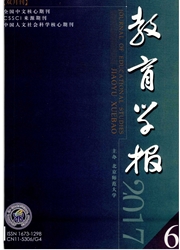

 中文摘要:
中文摘要:
我国近代校董会存在着制度的本土之源。清代中期开始,在许多民办书院和少量官办书院中出现了董事制度,开始形成较为系统的董事制度文本。董事由地方士绅担任,在官府掌控之下经营书院,董事职权统括了书院人事、经费、田产、招生、教学、教务、考试等院务,实际上扮演着书院的“经理人”角色。董事制度产生于书院官学化空前加强、山长聘任与田产管理严重腐败、官府经费拮据与民间资本增加的时代背景,形塑于中央集权的政治制度、科举取士的官僚选拔制度,以及传统社会的士绅治理模式。清代传统书院董事制度在清末以降国人办理的校董会制度中得以沿袭。
 英文摘要:
英文摘要:
China's modern school board has its local origin. Since the mid-Qing, board system e- merged and systematic board system started to form in many private academies and a small number of gov- ernment funded academies. The local gentry served as board members and managed academies under the control of the government. The board members took care of personnel, funds, real estate, enrollment, teaching, educational administration and examination; they actually played the role of "manager". The board system emerged in a context when government funded academies were unprecedentedly strength- ened, the dean appointment and estate management experienced serious corruption, and there were the lack of government funding and increased private capital; it was shaped in the centralized political system, the imperial examination for official selection, and the gentry governance model in traditional society. The board system of the traditional academy was followed by school board system in the late Qing Dynasty and the Republic of China.
 同期刊论文项目
同期刊论文项目
 同项目期刊论文
同项目期刊论文
 期刊信息
期刊信息
